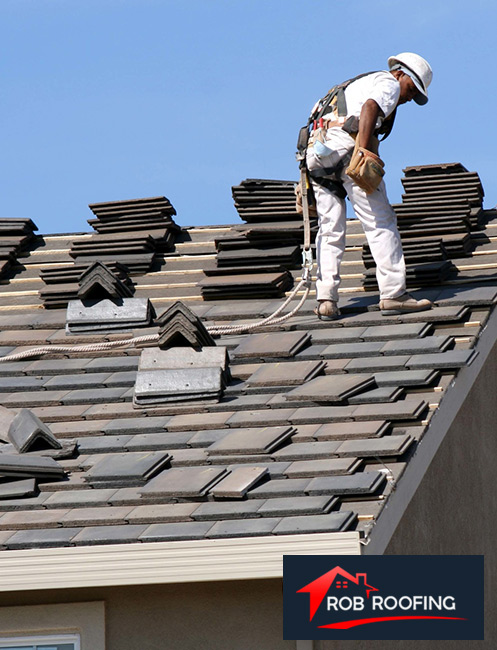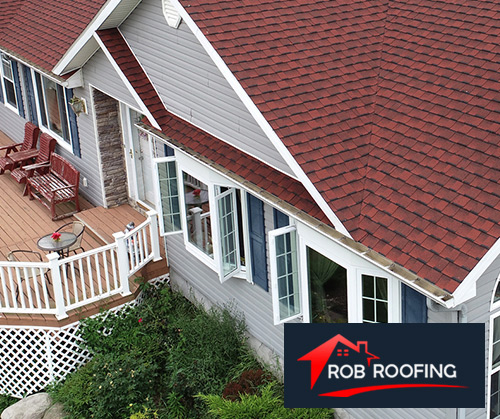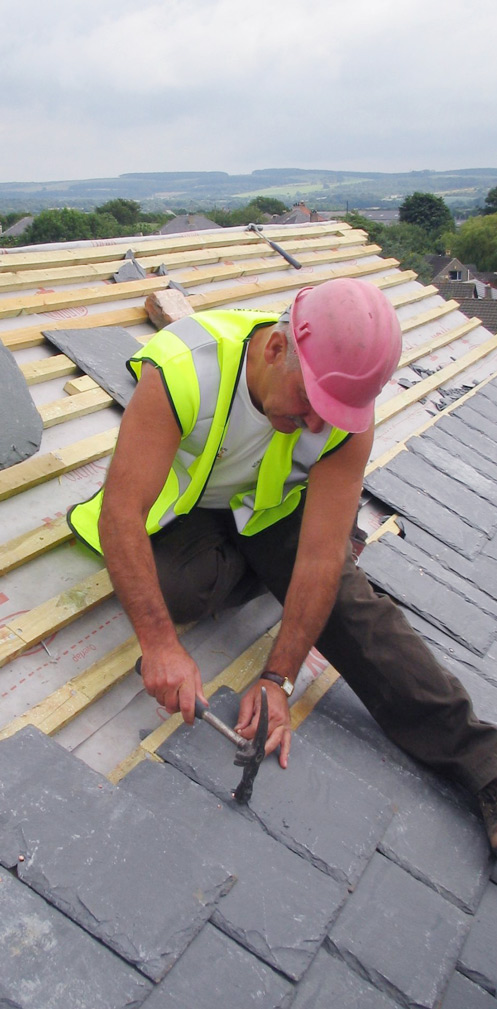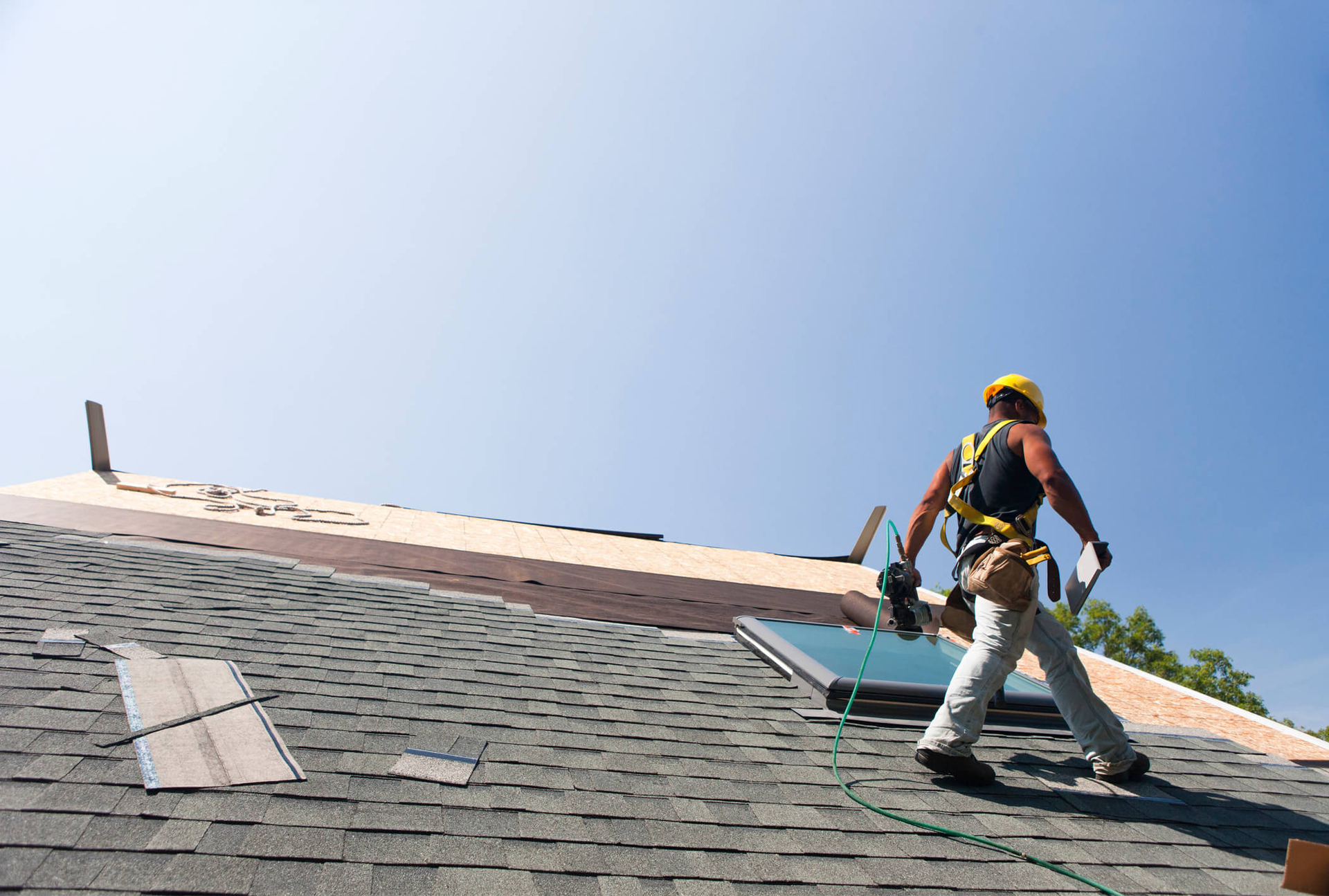As a specialized commercial roofing company in Universal City, CA, we offer complete roofing services to commercial buildings such as offices, warehouses, shopping centers, and industrial facilities. The service involves specialized materials and techniques to accommodate large roof areas, structural complexities, and specific industry requirements. Commercial roofing aims to provide durable, long-lasting protection for businesses while considering factors like energy efficiency and compliance with building codes.

Commercial roof installation requires careful planning and execution. It involves the process of installing a new roof system on commercial buildings to ensure protection, durability, and longevity. A successful commercial roof installation begins with thorough assessments of the existing roof, and determining the appropriate materials. The installation process involves multiple steps, including surface preparation, insulation installation, membrane or shingle application, and proper sealing and flashing. Attention to detail, adherence to industry standards, and skilled craftsmanship are essential to ensure a watertight and structurally sound roof. Proper commercial roof installation provides businesses with a reliable and secure shelter for their operations, protecting valuable assets and ensuring a comfortable working environment.
Commercial roof replacement is aimed at replacing an existing roof system on commercial buildings with a new one. This process is often necessary due to age, wear and tear, severe damage, or the need to upgrade to a more durable and energy-efficient roofing system. Commercial roof replacement involves careful planning, assessment of the existing roof, and selecting appropriate materials. The replacement process includes removing the old roof, addressing any underlying issues, installing insulation, applying the new roofing material, and ensuring proper sealing and flashing.
Commercial roof repair is a crucial process that addresses damages, leaks, or structural issues in a commercial building’s roof system. Prompt and effective repairs are essential to prevent further damage, protect the building’s interior, and maintain a safe working environment. Commercial roof repair involves thorough inspection to identify the problem areas, assess the extent of the damage, and determine the appropriate repair solutions. The repairs may include fixing leaks, replacing damaged shingles or membranes, repairing flashing or ventilation systems, and reinforcing weak or compromised areas. Thanks to our expertise in commercial roof repair, we ensure proper diagnosis, quality repairs, and the longevity of the roof system, preserving the integrity of the building and minimizing potential disruptions to business operations.

Residential roofing focuses on the installation and maintenance of roofs for homes and other residential buildings. It encompasses a variety of materials and styles, including asphalt shingles, metal roofing, and tile roofs, among others. Residential roofing ensures the protection of the home, enhances its curb appeal, and provides comfort and safety for homeowners and their families.

Residential roof installation is a vital process where a new roof on residential properties. It begins with careful planning, considering factors such as architectural design, weather conditions, and homeowner preferences. The installation process includes preparing the roof deck, applying insulation and underlayment, and installing the chosen roofing material, such as shingles, tiles, or metal sheets. Attention to detail, precise measurements, and skilled craftsmanship are essential for a successful residential roof installation. A well-installed residential roof provides homeowners with protection from the elements, enhances energy efficiency, and adds aesthetic appeal to their homes, creating a safe and comfortable living environment.
Residential roof repair is a crucial process that addresses damages, leaks, or structural issues in the roof of a residential property. It aims to restore the integrity and functionality of the roof, protecting the home and its occupants. The repair process involves a thorough inspection to identify problem areas, assess the extent of damage, and determine the appropriate repair solutions. Repairs may include fixing leaks, replacing damaged shingles or tiles, repairing flashing or gutters, and reinforcing weakened sections.
Residential roof replacement involves removing an existing roof and installing a new one on a residential property. The process begins with a thorough inspection to assess the condition of the existing roof, followed by selecting the appropriate roofing materials and engaging a professional roofing contractor. Residential roof replacement includes removing the old roof, repairing any underlying issues, installing insulation, and applying the new roofing material.

When you are making significant changes to your roofing, you need to apply for permits. Here are the different permits that you might need to get:
| Permit Type | Description |
| Building Permit | A general permit is required for most roofing projects, ensuring compliance with local building codes and regulations. |
| Roofing Permit | Specifically for roofing projects, this permit covers the installation, repair, or replacement of residential roofing materials and systems. |
| Electrical Permit | If any electrical work, such as installing roof-mounted solar panels, is involved, an electrical permit may be necessary. |
| Plumbing Permit | For projects that involve installing or modifying plumbing vents or pipes on the roof, a plumbing permit might be required. |
Apart from the ones mentioned above, your commercial roofing project might also require the following permits:
| Permit Type | Description |
| Fire Permit | If the commercial building has fire suppression systems or the roofing work involves fire-resistant materials, a fire permit may be necessary. |
| Sign Permit | If the roofing project involves installing or modifying signs on the roof, a sign permit might be required, especially for commercial signage. |
| HVAC Permit | If the roofing work includes installation or modification of HVAC (heating, ventilation, and air conditioning) systems, an HVAC permit may be necessary. |
| Environmental Permit | If the roofing project involves working on or near protected natural areas, wetlands, or bodies of water, an environmental permit may be required. |
| Noise Permit | For projects that involve loud machinery or roofing work outside of regular hours, a noise permit may be necessary to comply with noise regulations. |
Rob Roofing will also help you get the required roof permits from the local building department. Here is the process that needs to be followed to get the roofing permits
Some jurisdictions may also require proof of insurance.

The planning and preparation stage is the initial phase of the roofing project. During this stage, we discuss the project requirements, design preferences, and budget constraints. Our team assesses the existing roof condition and determines if any repairs or structural improvements are necessary before starting the roofing work. Permits and approvals, if required, are obtained during this stage. Additionally, the materials and equipment needed for the project are procured and the project timeline is established.
The second stage involves the actual roof installation or repair work. If it’s new construction or a complete roof replacement, the existing roof materials are removed, and the new roofing system is installed. This includes laying down underlayment, applying the chosen roofing materials (e.g., shingles, tiles, metal panels), and integrating necessary elements like flashing and sealants. For roof repairs, our team addresses specific issues such as leaks, damaged shingles, or other structural problems.
After the roof installation or repair is completed, we will conduct a thorough inspection to ensure the work meets the required standards and specifications. Quality assurance checks are performed to verify that the roof is free from defects, properly sealed, and able to withstand weather conditions. This inspection is essential to identify any potential issues and address them before concluding the project.
The duration of commercial roof installation can vary based on several factors, including the size and complexity of the roof, the type of roofing material being used, weather conditions, and the experience of the roofing contractor. On average, a commercial roof installation project can take anywhere from a few days to several weeks to complete.
There are several types of roofing materials commonly used in commercial roof installations. Some of the most popular ones include Thermoplastic Polyolefin (TPO) roofing, Ethylene Propylene Diene Terpolymer (EPDM) roofing, Built-up Roofing (BUR), Modified Bitumen, Metal roofing: Offers long-term durability and is available in various styles, including standing seam, corrugated, and metal shingles.
There are several signs that indicate your commercial roof may need repairs, including:
Regular roof inspections can help identify potential issues early, preventing more extensive damage and costly repairs.
The cost of commercial roof repairs can vary widely depending on the extent of the damage, the type of roofing system, the materials needed for repairs, and the complexity of the work. Minor repairs, such as patching small leaks, may be relatively affordable, while extensive repairs, such as replacing large sections of the roof or addressing structural issues, can be more expensive.
There are several signs that indicate it may be time for a commercial roof replacement instead of repairs. For example, most commercial roofs have a finite lifespan, typically ranging from 15 to 30 years, depending on the materials used. As the roof nears the end of its service life, replacement becomes a prudent decision to avoid further complications.
To minimize disruptions to business operations, our team often works closely with building owners to schedule the replacement during a time that causes the least disruption. Depending on the size of the building and the scope of the project, we may perform the replacement in sections or during off-peak hours to ensure business continuity. Temporary roofing solutions may also be used to protect the building during the replacement process.
In many cases, it is recommended to remove the old roof before installing a new one, especially if there are multiple layers of roofing material already in place. Removing the old roof allows the contractor to inspect the roof deck for any structural issues, and ensure a smooth and even surface for the new roof installation.
The best time for a residential roof installation depends on the climate and weather conditions. Generally, mild and dry weather conditions are ideal for roof installations to ensure a smooth process and prevent potential delays caused by rain, snow, or extreme temperatures. Spring and fall are often considered favorable seasons for roof installations in Universal City, CA.
Whether your homeowner’s insurance covers roof repairs depends on the cause of the damage and the terms of your insurance policy. Most homeowners’ insurance policies cover roof repairs resulting from sudden and accidental events, such as storm damage or a falling tree. However, routine wear and tear or neglect are usually not covered.
Roof repairs can be performed during the winter months, but weather conditions can affect the feasibility and safety of the work. If the roof is covered in snow or ice, repairs may need to be postponed until the roof surface is clear and safe to work on. Additionally, cold temperatures can affect the adhesion of certain roofing materials, such as asphalt shingles.
You can explore government incentives, tax credits, or rebates available for homeowners who invest in energy-efficient roofing materials or roofing systems that meet specific environmental standards. These incentives aim to promote sustainable and energy-saving practices.
The lifespan of a new residential roof depends on the type of roofing material used and the local climate conditions. Asphalt shingle roofs last between 20 to 30 years, while metal roofs can last 40 years or more. Premium roofing materials like concrete or clay tiles can have a lifespan of 50 years or longer. Proper maintenance and regular inspections can help extend the life of the roof.